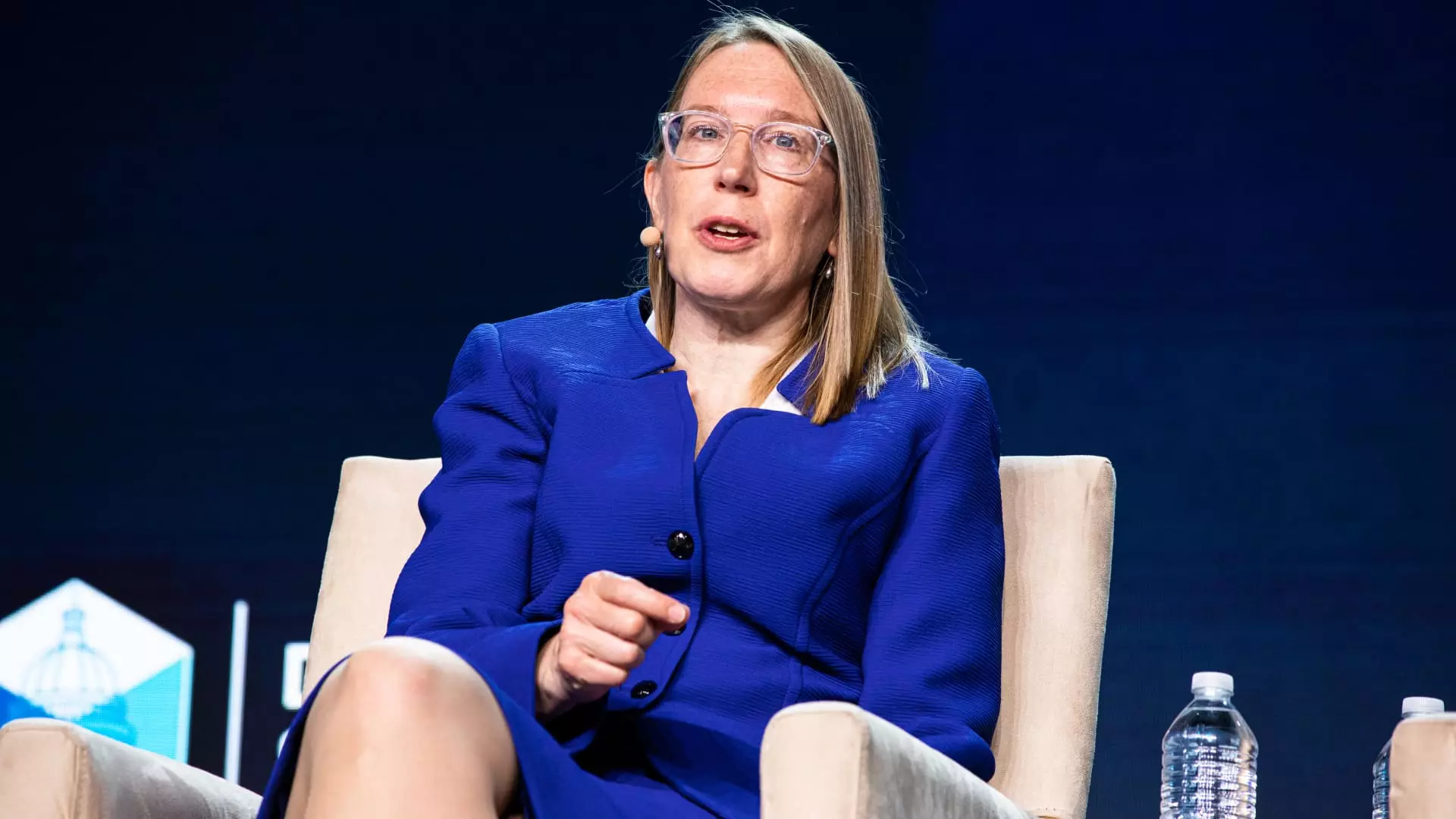In a significant shift, the Securities and Exchange Commission (SEC) has distanced itself from the regulation of meme coins, leaving a wide swath of the crypto landscape unmonitored. Hester Peirce, a prominent SEC commissioner, highlighted this change, indicating that meme coins like the newly launched $TRUMP token would not receive the traditional protections offered under federal securities law. This essentially signals to investors that they are embracing potential financial peril on their own. Peirce’s observations emphasize a critical reality: the absence of regulation does not equate to the absence of risk.
Since the SEC declared in February that most meme coins don’t qualify as securities, the sentiment in the marketplace has shifted. Investors, undeterred by the lack of oversight, have rushed into these pseudo-assets, often driven by hype rather than long-term value. The $TRUMP token exemplifies this phenomenon, soaring to a staggering $15 billion market capitalization before plummeting, demonstrating the volatile nature of meme-driven investments. This rollercoaster ride is reminiscent of the 2021 NFT fever, where assets fluctuated wildly based on speculative trends rather than intrinsic worth.
Profit Motives Amid Political Controversies
The launch of the $TRUMP token has not just fascinated crypto enthusiasts but invited scrutiny regarding potential conflicts of interest. Eighty percent of the token is controlled by Trump-affiliated entities, raising eyebrows about whether the former president’s crypto empire poses ethical dilemmas. Despite assurances from the White House that Trump’s assets are managed by a trust with no conflicts of interest, many Democratic lawmakers, including Senator Richard Blumenthal of Connecticut, have expressed concern that such ventures represent a path for foreign and corporate lobbies to gain influence with the former president.
The situation is a complex tapestry interwoven with political ambition and the struggle for regulatory clarity. As the SEC under the current administration loosens its grip on crypto regulation, questions inevitably arise regarding the motivations behind such a relaxed approach. With Trump’s interests aligning closely with burgeoning technological ventures, it is crucial to evaluate the implications of these relationships on broader economic manipulations and investor protections.
The Resurgence of Crypto Influencers
The crypto landscape is witnessing a resurgence of figures who were once in the crosshairs of regulatory scrutiny. A notable case is Changpeng Zhao of Binance, whose recent legal battles concluded when the SEC dropped its longstanding lawsuit shortly after his return from a federal prison stint for money laundering. This abrupt change in regulatory stance raises significant questions about the SEC’s priorities and whether political connections could be influencing enforcement actions, subsequently tilting the playing field in favor of certain stakeholders.
Zhao’s interactions with Trump-associated networks, particularly in connection with the USD1 stablecoin—a project linked to Trump’s enterprise—underscore the intertwining of cryptocurrency and traditional political power. This development extends beyond mere financial transactions; it illustrates a worrying notion that regulatory oversight may favor special interests amid a backdrop of political commerce.
A Need for Regulatory Clarity
Amid the chaos, Peirce maintains that the SEC’s actions should not be viewed as politically motivated; rather, they stem from a fundamental confusion about how existing securities laws intersect with an intricate crypto world. This sentiment reveals broader truths about the urgency of establishing clear, workable regulations. By rescinding restrictive measures like Staff Accounting Bulletin 121, the SEC aims to invite traditional financial institutions back into the realm of crypto custody. Such moves are essential for fostering a stable and secure environment in which investors can operate without fear of capricious regulatory constraints.
By many accounts, Peirce’s reflections highlight the delicate balance regulators must strike between ensuring investor protection and nurturing innovation in the rapidly evolving crypto landscape. The purpose of regulation should be to facilitate safe market conditions while allowing the dynamic elements of the crypto ecosystem to flourish.
In this unregulated frontier, the current climate encourages speculation and promotes risk-taking behaviors among investors who may not fully grasp the volatility of these digital assets. The lack of oversight could lead to dramatic consequences, where uninformed choices may result in significant financial losses. Ultimately, while there is an undeniable allure surrounding meme coins and their potential for sudden gains, investors must approach with a caution that is rarely emphasized in the current exuberance of the crypto market.

